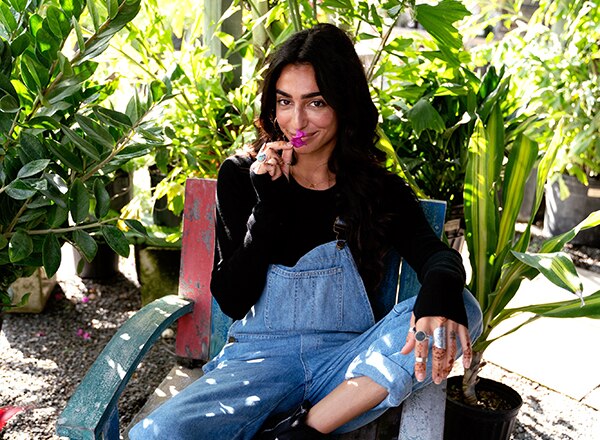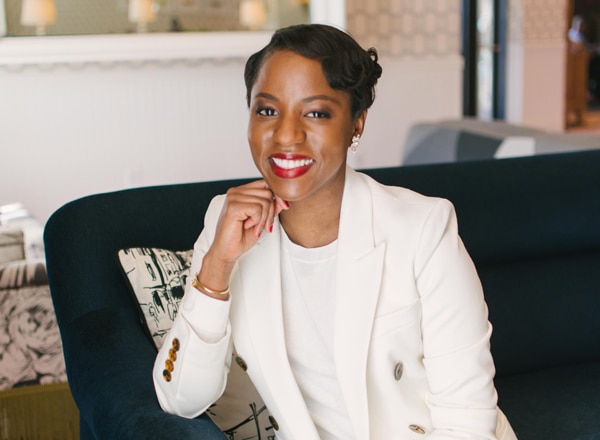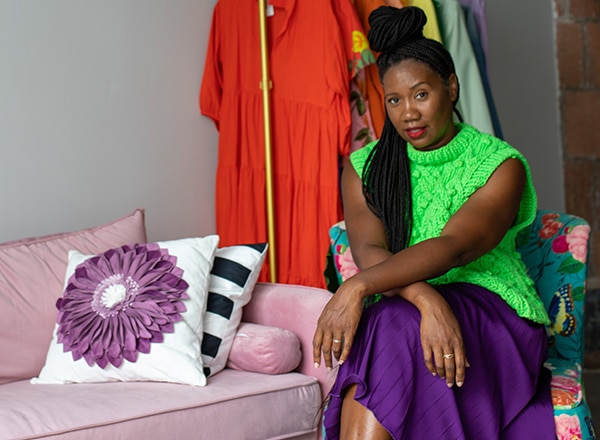At one point in my life, I thought I had landed my dream position. Soon after I graduated, I started working in private banking, receiving a robust check and enjoying all the perks of the trade: nights out at the best tables at different restaurants, VIP tickets to concerts and games, access to the fast lane everywhere I went. From the outside, it looked like I was living large, but the reality was very different: I hated my dream job.

From private banker to environmental entrepreneur
The day I got offered my second promotion in less than a year and a half, I decided to quit. Nobody understood why I was turning down such a good opportunity, but deep down my spirit was telling me to leave. It screamed from deep inside of me “this isn’t how you want to live your life” and reminded me about my connection to nature. I knew that I wanted to be successful, but that I had to put the planet over profit.
After a few years of ups and downs (I had to declare bankruptcy months after quitting my job and slept on my mother’s couch for almost a year while I reinvented myself), finally I managed to get my platform, Water Thru Skin, up and running, a platform focused on inspiring people to live more eco-responsibly and mindfully. No one believed in me at first, but I persevered. It took me almost six years to build up my customer base and followers but with every daily post— which served as a way to share my highs and lows throughout my entrepreneurship–I felt more confident about myself. It was more clear than ever: I needed to make sure it would be used to amplify Mother Nature’s call.
Being an entrepreneur is tough. It’s even harder when you’re a woman. And if the business you’re trying to launch is a sustainable one, let me tell you: it’s a wild ride. My second endeavor was Lifestyle With A Conscience, a holistic brand inspired by my journeys across Bali (a place I visit just about every month). During my travels, I came across a group of talented artisans who used recycled silver to create fantastic new pieces. My Balinese best friend and I began talking about a unique jewelry line that honored the sacredness of the land and (more importantly) paid the artisans a much fairer wage than they were used to. It was essential that if I were to source my pieces from these small-scale ateliers I recognized their work and paid them fairly.
Usually when we think about sustainability we only consider nature—but we forget that humans are part of nature too. Each of us is responsible for the effect we have on both the environment and our communities. I could see it in their faces: no one had treated them with dignity and respect. That’s why it was crucial to ensure that the people I worked with were being treated with dignity and compensated fairly for their work. People are the key to a profitable business and a happy society.
Another key aspect of my journey was learning to recognize my mistakes and promptly correct them. When I started Lifestyle With A Conscience, we used crystals as decoration pieces, but after reading more about the topic, I came to realize how unsustainable they are–not to mention some of the illegal mining practices within this industry. I decided to drop them (even if it meant sacrificing profit and going back to the drawing board. We must hold ourselves accountable for our actions if we want to make an impact on the planet–from the labor to the packaging to the ingredients we use, each of our actions has a rippling effect.
When I co-launched my third company with Santiago R. Tarditi, @intu.rituals, it took us a year to scour the world searching for a farmer that aligns with our values: they grow their botanicals without pesticides and with the sun’s rays instead of artificial lighting. Once the raw material was ready, we looked for packaging that was either reused, recycled, or repurposed in order to minimize waste. Intu’s products come in a plastic-free, tin box that can be turned into a case to keep your belongings. They’re wrapped in organic tissue paper printed with biodegradable soy ink. Products are shipped in a recycled box printed with nontoxic algae ink, and instead of using styrofoam or plastic bubble wrap to protect our products, we use kraft paper to create a cushion. One of our products comes in a dropper that, unfortunately, contains a plastic cap. Instead of leaving our clients with this problem, we ask them to return the caps to us so we can properly dispose of them through Terracycle, a company that turns all kinds of plastic into new products.
In the rush of being a conscious entrepreneur—between legal requirements, bookkeeping, and logistics—we tend to forget about our carbon footprint. Luckily, there are many ways we can offset it through different actions, such as donating the equivalent amount to reforestation or to social programs. That’s why I decided to co-launch @the.yindah, a foundation in Bolivia that supports local indigenous communities in the Chiquitania region—the Amazonian heart of my country—through sustainability projects, education, and nature and wildlife rehabilitation.
Being an environmental entrepreneur is the most rewarding venture I’ve ever embarked on. It’s not easy and presents a series of challenges, but these struggles are always worth it. Knowing I can contribute to lessening the depletion of our natural resources, promoting fair working conditions, reducing inequality, and fighting climate change—all while running a successful business—is gratifying and inspiring. In the end, it’s my little contribution to all that the planet has given me over the years.













